1. Health Insurance

People love to say health insurance is optional, especially after the federal individual mandate penalty was removed in 2019. But in reality, opting out is like playing financial Russian roulette with your well-being. A single hospital visit can cost thousands, and medical debt remains one of the top causes of bankruptcy in the U.S. Even if you’re healthy, one accident can make you wish you’d paid those monthly premiums.
Employers and universities often reinforce the illusion of choice. Many jobs automatically enroll workers in health plans or penalize them for opting out. Some states, like California, even maintain their own insurance mandates. So while it’s not technically required everywhere, in practice, skipping coverage isn’t a move most Americans can afford.
2. Childcare

Raising kids might be a personal choice, but finding childcare isn’t. Working parents face astronomical costs that often rival rent or tuition. Yet most workplaces still operate like it’s 1950, assuming someone’s home full-time. Without childcare, holding down a job becomes nearly impossible.
Americans pretend this is optional — like parents can just “figure it out.” But the lack of universal childcare means families are stuck juggling impossible schedules or shelling out huge sums. Grandparents and daycare centers have become informal lifelines. It’s a quiet necessity that the system refuses to acknowledge.
3. Credit Scores
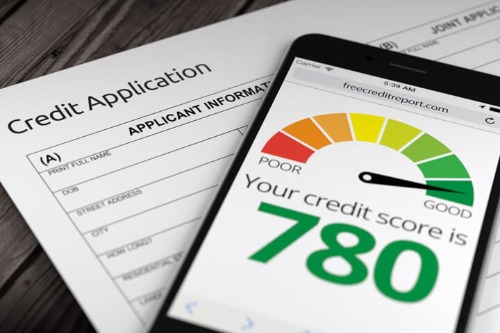
You don’t have to have a credit score — unless you ever want to rent an apartment, buy a car, or get a mortgage. The entire U.S. financial system revolves around creditworthiness, which makes it less of a luxury and more of an invisible ID. Without one, you’re treated like a ghost in the economy. Even utilities and cell phone companies often require credit checks.
What’s wild is that your score follows you everywhere, like a financial GPA that never resets. Paying bills on time, using credit cards responsibly, and keeping balances low aren’t moral choices — they’re survival tactics. The irony is that avoiding debt entirely can hurt your score, making “responsibility” a double-edged sword. In America, building credit isn’t optional; it’s part of growing up.
4. College

The “you don’t need college to succeed” line sounds empowering — until you check job listings that quietly demand a degree for entry-level positions. Many employers still treat a bachelor’s as a basic filter, even for roles where it’s barely relevant. This creates a catch-22: you can skip college, but it often means fewer opportunities and lower pay. It’s not a choice so much as a costly expectation.
And the social pressure doesn’t help. From high school counselors to family gatherings, the college question is practically a rite of passage. The result? A generation buried under student debt for the privilege of being “qualified.” The dream of alternative paths exists, but it’s still treated like the road less traveled.
5. Owning a Car
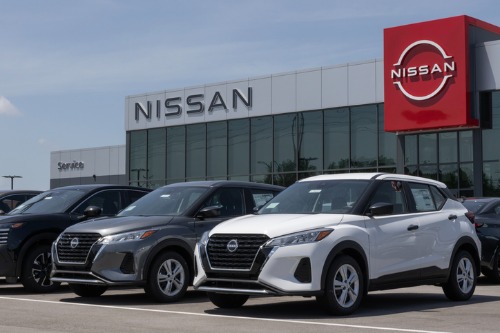
In most of the U.S., not owning a car isn’t practical — it’s nearly impossible. Outside a few major cities, public transportation is limited, unreliable, or nonexistent. Everything from grocery stores to workplaces assumes you can drive yourself there. The infrastructure literally favors car owners, from zoning laws to parking lots.
Even so, Americans often talk about car ownership like a personal choice. But with urban sprawl and weak transit funding, the “freedom of the open road” feels more like a forced membership fee. Gas prices, insurance, and repairs are unavoidable expenses baked into daily life. The car may be optional in theory, but try living without one and see how fast that illusion breaks.
6. Working Full-Time

“Work-life balance” sounds great on paper, but most Americans don’t actually have a choice. Health benefits, 401(k) plans, and job security are typically tied to full-time employment. Part-time roles often pay less, offer no insurance, and come with unpredictable schedules. So while 40 hours a week sounds like a norm, it’s actually the price of entry for a stable life.
Add in housing costs and inflation, and even a full-time paycheck can feel stretched. Many people take on side gigs or second jobs just to stay afloat. The system rewards constant work, not efficiency or balance. So yes, you can technically work less — but it’s often a financial penalty disguised as freedom.
7. Internet Access
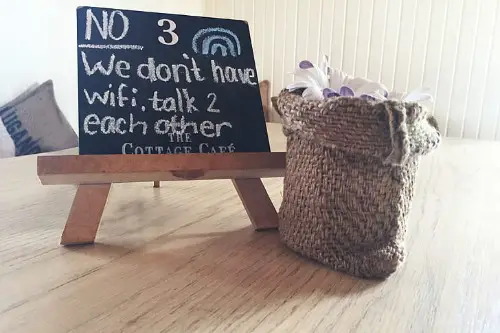
The internet is marketed as a convenience, but try functioning in modern America without it. From applying for jobs to accessing healthcare, everything happens online. Even government services, like taxes or benefits applications, assume you’re connected. It’s the invisible backbone of modern life, and yet it’s treated like an optional luxury.
The digital divide shows how un-optional it really is. Rural areas and low-income communities struggle when they lack reliable broadband. Students without home internet fall behind, and job seekers miss opportunities. The internet isn’t just entertainment — it’s infrastructure, whether we admit it or not.
8. Owning a Smartphone
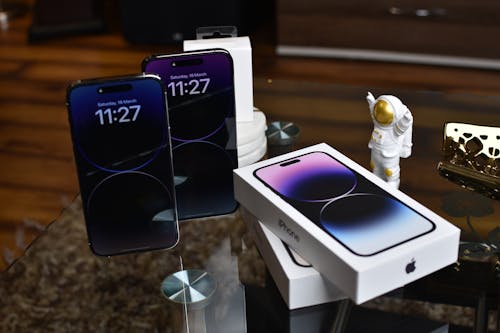
Technically, no one forces you to own a smartphone. But good luck navigating the modern world without one. Boarding passes, parking meters, restaurant menus, and even event tickets live behind a touchscreen now. It’s less about convenience and more about social expectation.
Employers and schools often rely on mobile communication, assuming instant availability. Banks, healthcare providers, and even two-factor authentication systems require apps. The few who resist are treated like they’re living off the grid. In 2025, “I don’t have a smartphone” isn’t quirky — it’s suspicious.
9. Social Media

Plenty of Americans claim they can “just quit social media,” but that’s only half true. So many aspects of personal and professional life now run through platforms like LinkedIn, Facebook, or Instagram. Networking, business promotion, even community events often live exclusively online. Opting out means opting out of visibility itself.
And despite growing awareness of its downsides, social media remains baked into modern identity. Employers Google you, friends expect updates, and businesses market through your feeds. Even dating apps have become a social necessity. The irony? Everyone says they hate it, but no one can truly escape it.
10. Filing Taxes
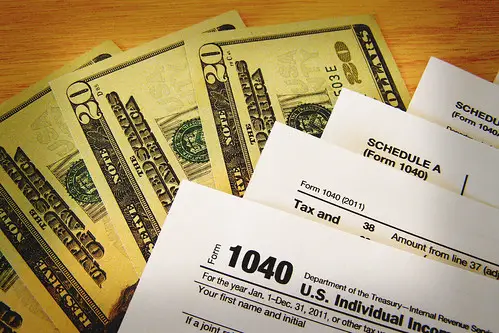
Filing taxes every year feels like a national hobby nobody signed up for. It’s legally required, of course, but the system is so complicated that it feels optional — if only out of confusion. Americans spend billions collectively on tax prep services to decode forms the IRS already has data for. It’s mandatory bureaucracy disguised as personal responsibility.
Even when you owe nothing, you still have to file to claim refunds or benefits. Miss a deadline, and you’re hit with penalties. Countries like Estonia file taxes in minutes; Americans spend hours and money doing what the government could automate. It’s not just required — it’s ritualized.
11. Tipping

Americans love to say tipping is optional, but try skipping it and see how fast you get side-eyed out of a restaurant. The U.S. tipping culture has evolved into a soft mandate, with most service workers relying on gratuities to meet basic income levels. Federal minimum wage laws even allow employers to pay tipped workers less, assuming customers will make up the difference. So while you could choose not to tip, it’s basically choosing to make someone else cover your moral tab.
The practice has spread far beyond restaurants, too. Baristas, delivery drivers, hotel staff, and even some self-checkout kiosks now flash that digital tip screen like a test of your character. Americans complain about “tipflation,” yet still hit 20% out of sheer social pressure. Calling it optional is like calling speed limits “suggestions” — technically true, but practically impossible.
12. Homeownership
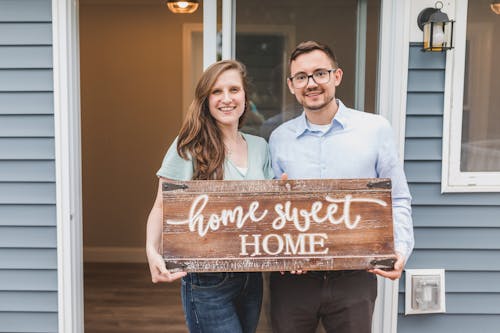
“Renting is fine,” people say — until they realize rent prices rise faster than wages. Homeownership is still treated as the gold standard of adulthood, the main way to build wealth in America. Tax breaks, credit perks, and social validation all tilt toward owning property. It’s the unspoken finish line everyone’s still running toward.
But the barriers keep growing. Skyrocketing home prices, interest rates, and limited inventory make “optional” feel like “unreachable.” Even those content to rent feel cultural pressure to buy eventually. Homeownership may not be legally required, but it’s practically built into the American Dream blueprint.
13. Retirement Savings

You don’t have to save for retirement — you just have to accept working until you drop if you don’t. Social Security alone doesn’t cover most living costs, and pensions have mostly vanished. Americans are told to handle retirement solo through 401(k)s and IRAs. It’s self-reliance in its most exhausting form.
The pressure starts young. Employers nudge you to contribute “just a little,” but compound interest turns that nudge into necessity. Skipping it means future poverty, not freedom. Retirement planning isn’t optional — it’s just rebranded as personal responsibility.
14. Voting

Technically, voting is voluntary. But every civic conversation, social media post, and ad campaign tells you it’s your “duty.” There’s guilt baked into the act — don’t like how things are? You should’ve voted. Skipping an election isn’t neutral; it’s treated as complicity.
Beyond guilt, many parts of daily life hinge on the outcomes of elections — healthcare, taxes, education, and rights. So while you can stay home on Election Day, you’re still affected by the results. The illusion of choice disappears fast when policies hit your wallet. In America, not voting feels like voting by silence.
This post 14 Things Americans Pretend Are Optional But Are Quietly Mandatory was first published on American Charm.


